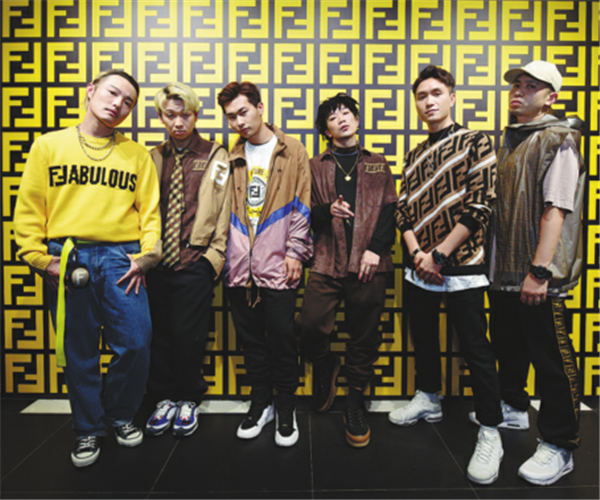Big ambitions


Italian luxury house Fendi, which recently unveiled a reinterpretation of the brand's iconic FF logo, is looking to get even bigger on the mainland
After touring London and Hong Kong, Italian luxury house Fendi recently brought its new capsule collection to China with a "social media postable" party at one of Shanghai's most popular underground nightlife venues, Arkham.
The show was to unveil a reinterpretation of the brand's iconic FF logo, which was created in 1965 by its creative director Karl Lagerfeld, who is still with the brand.
The collection, titled FF Reloaded, is the 93-year-old brand's latest effort to connect with the millennial generation.
"A brand like Fendi must communicate with the people of today and tomorrow, even if they cannot afford Fendi now," says Serge Brunschwig, chairman and CEO of Fendi.
"What is important is to be part of the culture and to be desired. That's what luxury is - desired by everybody and owned by few," says the former executive of Christian Dior who was picked for his current role by LVMH, which owns Fendi, in February.
Around a dozen fashion bloggers, online influencers and street artists from across Asia joined the party and helped make the event a social media hot topic.
Jackson Wang, a 24-year-old Hong Kong singer who has been the endorser for the brand's menswear since last year, performed a song, Fendiman, at the party.
Speaking about why Shanghai was chosen as the venue for the party, Brunschwig says: "We have lots of icons, like the fur, the peek-a-boo. But these icons must be updated and 'appropriated' for young people. This (capsule) collection is for the world of today, and the world of today is, of course, China."
Silvia Venturini Fendi, from the third generation of the founding family and the mastermind of the brand's accessories and menswear lines, says the reason for reworking the double-F emblem is because "young kids today like logos".
Now, with bold logo-heavy apparel and accessories like monogrammed outwear and knits that are meant for social media posts, Fendi is one of the latest luxury brands to tap into what is called the "logomania craze".
Moschino, Gucci, and probably one of the initiators Louis Vuitton with its partnership with Supreme, have all enjoyed commercial success in the past two years by tweaking their iconic logos.
"I don't think logos will ever go back to what they were. But we are seeing them meet the street, graffiti, and Chinese calligraphy," says Brunschwig, comparing the current era to the last time logos swept the industry, back at the beginning of the century when luxury industry was still in its infancy in China.
Meanwhile, globally the brand is now partnering exclusively with online fashion retailer Net-a-porter.com to sell its collection. And, in China, it is working with the country's e-commerce giant JD.com and the shopping platform of WeChat, the messenger app with close to 1 billion users. Speaking about the China e-commerce foray, Brunschwig, who has been working in luxury industry in Asia for more than two decades, says: "The Chinese luxury market is a dream come true.
"I remembered very well 20 years ago that the country was a nation on bicycles and the makeup was so-so. And then five years later, when I was back, it has become so sophisticated that I felt like I was in another country.
"Now, the country is in the next phase, where it has become a trendsetter and transformer - inventing new trends that have a global influence."
Looking ahead, the 57-year-old businessman makes no bones about his ambition for the brand, which has in recent years crossed the 1-billion-euro threshold in annual sales.
"I want success and I want growth. A brand like Fendi must become one of the biggest in China. That's my vision, and we will realize it by doing what we are doing now."




































